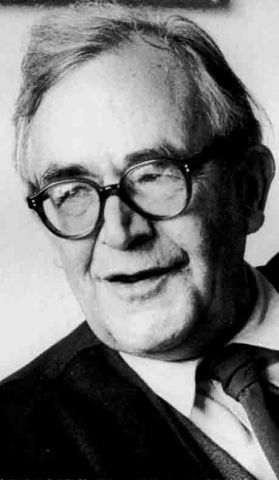 In chapter 3 of his helpful 1996 book Truth & Power: The Place of Scripture in the Christian Life, J. I. Packer takes a few paragraphs to evaluate the effect of Karl Barth’s theology on biblical interpretation in the twentieth century. “Barth’s work over half a century has certainly renewed in some quarters a sense that we must go to the Bible for God’s message,” Packer says. That is quite an accomplishment, but Packer is also concerned with some of Barth’s less beneficial influence on modern theological style:
In chapter 3 of his helpful 1996 book Truth & Power: The Place of Scripture in the Christian Life, J. I. Packer takes a few paragraphs to evaluate the effect of Karl Barth’s theology on biblical interpretation in the twentieth century. “Barth’s work over half a century has certainly renewed in some quarters a sense that we must go to the Bible for God’s message,” Packer says. That is quite an accomplishment, but Packer is also concerned with some of Barth’s less beneficial influence on modern theological style:
Certain of Barth’s characteristics had a significant impact on the church: the novelty of his exegesis, which makes ingenuity seem more important than fidelity to the text in its context; the almost hypnotic elegance of Barth’s formulations, which leaves one feeling that any theology would do, provided it was beautiful; and Barth’s paradoxical use of our down-to-earth Bible to construct an abstract and seemingly nonhistorical scheme of conceptual Christocentrism, which, as R.H. Roberts puts it, “hovers above us like a cathedral resting upon a cloud, structurally detached from space-time reality.” These unique characteristics have spawned in today’s church an uncontrolled and currently uncontrollable theological pluralism based on selective and fanciful use of biblical material by each thinker. This pluralism, more than anything else, is Barth’s actual legacy to us. His theology will undoubtedly be the subject of much academic study for many years. But his adventurous expositions of Scripture, throughout Church Dogmatics and elsewhere, will ultimately, I think, be rated as experiments that failed in the end to cast much light on the message of the biblical text.
My first reaction to reading this passage was to consider J.I. Packer a bit of a fuddy duddy for dismissing Barth so summarily. Packer is, after all, an evangelical theologian of considerable talent who, though prolific, chose not to give us a systematic theology of his own. Instead, he has spent an active career catechizing the churches. Barth, on the other hand, spoke in multivolumes with an uncanny confidence and a constructive flair. The creativity of Karl Barth is exactly the kind of thing J. I. Packer would dislike.
But on second reading, I think Packer is basically right. He clearly has felt the attraction that Barth’s writing exerts: novelty, ingenuity, “hypnotic elegance,” “adventurous expositions,” and the suggestion that “any theology would do, provided it was beautiful.” I speak as somebody who loves to read Karl Barth’s work: on days when I don’t feel like a real theologian, I read a few dozen pages of Barth and am always refreshed in my sense of what the discipline of theology can be. But that strange power that Barth’s work has carries with it a temptation. When I read Barth, I want to theologize like him, in the grand style. I think that’s what Packer is getting at when he says Barth’s legacy is “an uncontrolled… theological pluralism based on selective and fanciful use of biblical material.” Apparently everybody who reads Barth thinks they ought to have permission to move giant ideas around like that, and to assert astonishing things on page after page. Some of Moltmann’s work gives that impression, and a few of Colin Gunton’s looser books as well, to say nothing of the host of theologians who behave in really irresponsible ways. In fact, the first place I ran across this view of Barth was in a 1968 article by Rosemary Radford Ruether that praised Barth as a “mythopoeic theologian” whose powerful imagination made all kinds of new departures from traditional theological formulations possible.
It’s not fair to blame Barth for the “uncontrollable theological pluralism” that erupted in late twentieth century theology. And a fuller account of his work would have to recognize the overwhelming sense of obligation to the church and responsibility to God that always exercised a controlling influence on Barth. But perhaps the volumes of the Church Dogmatics should come with a warning label: Trained Professional Theologian on a Closed Course. Don’t Try This At Home.